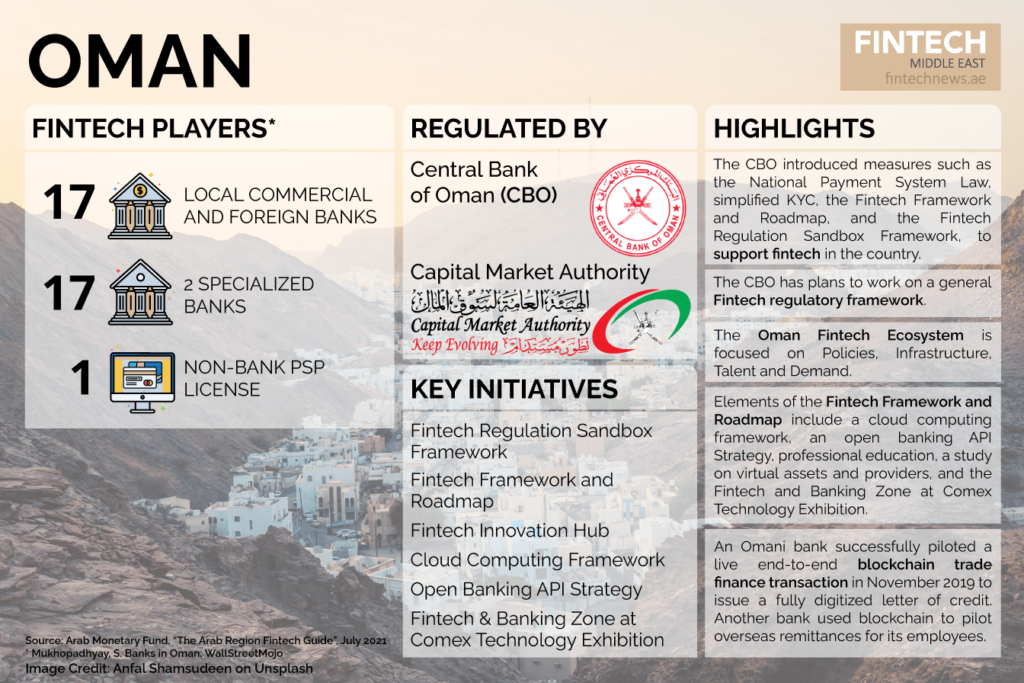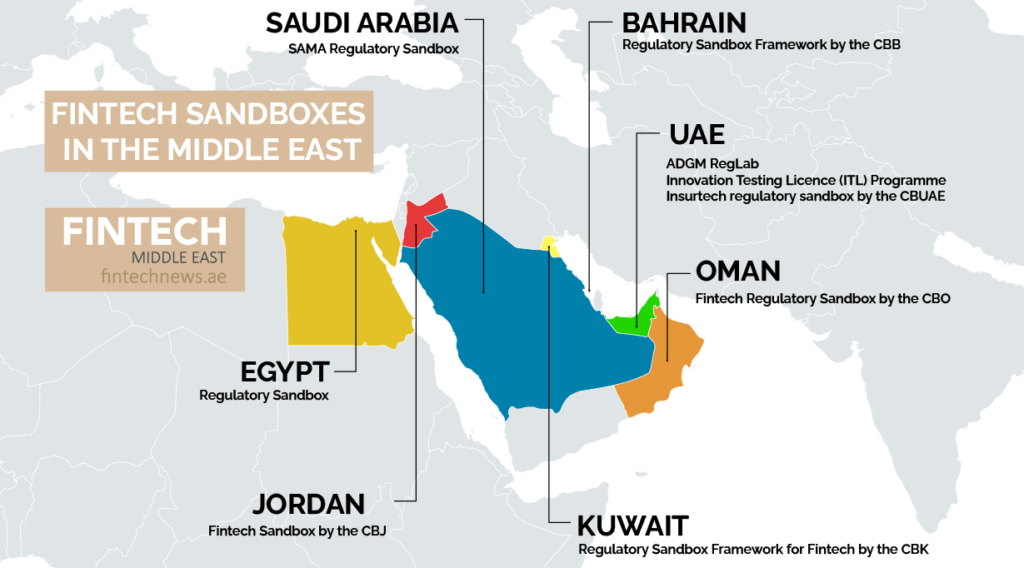The Central Bank of Oman (CBO) is drafting the so-called Open Banking API Strategy as part of a broader push to stimulate innovation in the finance sector.
The intentions were outlined in the 2021 Arab Region Fintech Guide, a paper released in July by the Arab Monetary Fund which depicts the fintech ecosystem in ten Arab countries.

According to the paper, the CBO is pursuing its fintech ambitions and laying the foundation for digital transformation.
The Open Banking API Strategy is part of the Fintech Framework and Roadmap, which comprises several initiatives aimed at establishing a comprehensive and nurturing fintech ecosystem in Oman.
Among other things, these include the introduction of fintech regulation, the establishment of a regulatory sandbox, the release of a cloud computing framework for the banking and financial sector, as well as initiatives related to electronic know-your-customer (eKYC), fintech education and virtual assets.
Open Banking API Strategy will focus on allowing licensed financial institutions to share certain data with third parties through APIs, the report says, and ultimately facilitate the emergence the new, innovative banking and financial services previously non-existent in Oman.
Oman has been somewhat of a laggard in open banking, despite its banking industry trade group having urged domestic banks to embrace the movement.
In October 2020, Oman Banks Association (OBA) CEO Ali Hassan Moosa warned that Omani banks ignored at their own peril an array of new developments, citing open banking, fintech, artificial intelligence (AI) and machine learning (ML), as critical ingredients for success in today’s banking business.
Open banking allows services to effectively become “invisible” and customer journeys to become frictionless, he said. The head of the OBA called on local banks to be suitably geared for an upcoming period of accelerated change expected to sweep across the industry.
Open banking in the Arab world
Oman is following in the step of other countries in the Arab world such as Bahrain, Egypt and Kuwait which are embracing a regulation-led approach to open banking. These jurisdictions have all introduced formal regulations. Meanwhile, the United Arab Emirates (UAE) and Qatar have opted for a market-led model.
Bahrain issued open banking regulation in 2018 and began rolling out the Open Banking Framework in October 2020. It’s the first country in the Middle East and North African (MENA) region to mandate all retail banks to comply with open banking rules.
Saudi Arabia started under a market-led approach, which later on morphed into a more formal regulatory framework. The central bank is planning to go live with open banking during the first half of 2022.
The UAE hasn’t released any open banking regulation at the federal level yet, but “free zones” the Abu Dhabi Global Market (ADGM) and the Dubai International Finance Centre (DIFC) have been active on the topic, publishing API regulatory guidance, issuing data privacy laws, and creating an API sandbox, for example.
Oman’s fintech developments
In the past couple of years, the CBO has taken a number of steps to support the fintech space and the digital transformation journey in the financial and banking sector.
These include easing regulation for fintech and the provision of payment services, simplifying KYC policy, establishing a fintech committee and engaging with relevant local stakeholders.
In December 2020, the CBO launched the Financial Regulatory Sandbox, allowing participants to live-test their innovative fintech solutions in a safe environment under the supervision of the central bank. Earlier that same year, the CBO granted its fintech license to Thawani Technologies, a digital payments startup.

More initiatives are in the works. New legislation regulating crowdfunding activities is targeted to be issued as early as this month. This week, Oman and Saudi Arabia signed a memorandum of understanding (MoU) to strengthen cooperation between the two countries in areas including the digital economy and cybersecurity. Under the MoU, the Saudi-Omani Digital Skills Initiative was launched and training programs will be introduced later on in fields that include fintech, data and artificial intelligence (AI).
In the traditional banking sector as well a number of initiatives have been undertaken by incumbents to keep up with the fast-evolving landscape. KPMG’s newly released Oman banking perspectives 2021 report notes that some are harnessing data and advanced analytics to get a real-time understanding of their customers. Others are engaging and partnering with third parties to increase speed to market, reduce costs and close capability gaps.
In September 2020, Bank Muscat, one of the biggest financial institutions in the country, launched a US$100 million fintech investment vehicle called BM Innovate. Through the fund, the bank said it aims to create a strong network in the fintech ecosystem and invest in both local and international fintech companies.
Featured image credit: Photo by Anfal Shamsudeen on Unsplash








No Comments so far
Jump into a conversationNo Comments Yet!
You can be the one to start a conversation.